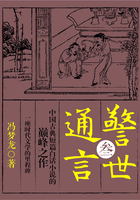The 1848 uprisings in Germany put Engels in mind of the last great peasant rebellions of of 1500s.As he would later write: "The parallel between the German Revolution of 1525 and that of 1848-49 was too obvious to be altogether ignored at that time."Engels demonstrates the failure of both these revolutions was largely attributable to the bourgeois/burgherdom (and thus underscoring the mdoern need for an alliance between the working proletariat and the working peasantry).
The Peasant War in Germany was the first history book to assert that the real motivating force behind the Reformation and 16th-century peasant war was socio-economic (class conflict) rather than "merely" religious.
The Peasant War in GermanyFrederick Engels'
THE PEASANT WAR IN GERMANYENGELS' PREFACETO THE SECOND EDITION T his work was written in London in the summer of 1850, under the vivid impression of the counter-revolution that had just been completed.It appeared in 1850 in the fifth and sixth issues of the Neue Rheinische Zeitung , a political economic review edited by Karl Marx in Hamburg.My political friends in Germany desire to see it in book form, and I hereby fulfil that desire, since, unfortunately, it still has the interest of timeliness.
The work does not pretend to present independently collected material.
Quite the contrary, all the material relating to the peasant revolts and to Thomas Muenzer has been taken from Zimmermann whose book, although showing gaps here and there, is still the best presentation of the facts.Moreover, old Zimmermann enjoyed his subject.The same revolutionary instinct which makes him here the advocate of the oppressed classes, made him later one of the best in the extreme left wing of Frankfurt.
If, nevertheless, the Zimmermann representation lacks internal coherence; if it does not succeed in showing the religious and political controversies of that epoch as a reflection of the class struggles that were taking place simultaneously; if it sees in the class struggles only oppressors and oppressed, good and evil, and the final victory of evil;if its insight into social conditions which determined both the outbreak and the outcome of the struggle is extremely poor, it was the fault of the time in which that book came into existence.Nevertheless, for its time, and among the German idealistic works on history, it stands out as written in a very realistic vein.
This book, while giving the historic course of the struggle only in its outlines, undertakes to explain the origin of the peasant wars, the attitude of the various parties which appear in the war, the political and religious theories through which those parties strove to make clear to themselves their position; and finally, the result of the struggle as determined by the historical-social conditions of life, to show the political constitution of Germany of that time, the revolt against it; and to prove that the political and religious theories were not the causes, but the result of that stage in the development of agriculture, industry, land and waterways, commerce and finance, which then existed in Germany.This, the only materialistic conception of history, originates, not from myself but from Marx, and can be found in his works on the French Revolution of 1848-9, published in the same review, and in his Eighteenth Brumaire of Louis Bonaparte.
The parallel between the German Revolutions of 1525 and of 1848-9was too obvious to be left entirely without attention.However, together with an identity of events in both cases, as for instance, the suppression of one local revolt after the other by the army of the princes, together with a sometimes comic similitude in the behaviour of the city middle-class, the difference is quite clear.
"Who profited by the Revolution of 1525? The princes.Who profited by the Revolution of 1848? The big princes, Austria and Prussia.Behind the princes of 1525 there stood the lower middle-class of the cities, held chained by means of taxation.Behind the big princes of 1850, there stood the modern big bourgeoisie, quickly subjugating them by means of the State debt.Behind the big bourgeoisie stand the proletarians."I am sorry to state that in this paragraph too much honour was given to the German bourgeoisie.True, it had the opportunity of "quickly subjugating"the monarchy by means of the State debt.Never did it avail itself of this opportunity.
Austria fell as a boon into the lap of the bourgeoisie after the war of 1866, but the bourgeoisie does not understand how to govern.It is powerless and inefficient in everything.Only one thing is it capable of doing: to storm against the workers as soon as they begin to stir.It remains at the helm only because the Hungarians need it.
And in Prussia? True, the State debt has increased by leaps and bounds.The deficit has become a permanent feature.The State expenditures keep growing, year in and year out.The bourgeoisie have a majority in the Chamber.No taxes can be increased and no debts incurred without their consent.But where is their power in the State? It was only a couple of months ago, when a deficit was looming, that again they found themselves in the most favourable position.They could have gained considerable concessions by persevering.What was their reaction? They considered it a sufficient concession when the Government allowed them to lay at its feet nine millions, not for one year alone, but to be collected indefinitely every year.
I do not want to blame the "national liberals" of the Chamber more than is their due.I know they have been forsaken by those who stand behind them, by the mass of the bourgeoisie.This mass does not wish to govern.1848 is still in its bones.
Why the German bourgeoisie has developed this remarkable trait, will be discussed later.















